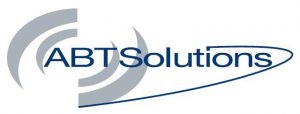The Job Interview: Making it work for you!
So You Want to Get a Job Offer. You can by following these Proven Techniques:
I. Preparation – “Skill set Summary.”
Prior preparation will enable you to be confident, overcome interviewing inexperience, and to sell yourself and your qualifications. Begin by preparing your employment, educational and miscellaneous inventory sheets which will outline your qualifications. On these 8-1/2 x 11 sheets, which are for your eyes only state the facts. Don’t be modest, don’t minimize your strengths, and be specific when describing results.
Never go on an interview without first researching the company. One hour on the ‘Web’ or in the library utilizing Standard & Poor’s, Dun & Bradstreet and Moody’s reference material will enable you to know the company’s products/services, markets, sales volume, locations and subsidiaries.
Prepare to answer all questions you do not want to hear. If you can sensibly answer the toughest questions, the others are easy. All questions potentially have follow-ups. Prepare to answer the logical who, what, why, when and how questions.
II. How to Conduct Yourself During the Interview.
Prior planning requires you to inventory all responsibilities performed and to state how well you carried them out.
Prove your competency by stating how well you performed in the past by using the 1-2-3 mini-story technique.- i.e., state the problem, describe your solution and emphasize the positive results.
Strive to project eagerness and interest; be a conversationalist by being yourself.
Conclude the interview by getting a “what-will-happen-next?” summary. Accept the offer on the spot if it is what you want, showing interest in the opportunity. Write a brief follow-up letter, report your progress to your Account Executive.
Be punctual. Professional manners and courtesy are fundamentally important. Show enthusiasm for the job.
III. How to Answer Questions
The question – answering rule says, “Answer every question in terms of your background and qualifications or in terms of the job to be filled.”
“Tell me about yourself” means, “Tell me about your qualifications.” Pre-plan a three-to-five-minute answer describing your education and then mention each job in terms of accomplishment or performance indicators.
Personality questions attempt to determine if you have the qualities being sought. “What kind of manager are you? Are you creative?” Answer these questions in terms of the obvious answer supported by past or present experiences as proof of your claim.
Motive questions are asked to determine if you would enjoy the job. “Describe your ideal job. Would you prefer to work for a large or small company? What did you like most/least about your last job?” Answer these questions as they relate to the job for which you are interviewing, following the question-answering rule. Be specific and emphatic.
Salary questions: When asked what you desire, say, “I’m presently earning $_____, and I am prepared to accept a fair offer based upon my skills and experience.” If possible, avoid answering the question until an offer is made.
Prepare for tough questions. Anticipate what they-will be. They will focus on: reason for leaving, quality of performance. Be brief but factual. Write out your answers, refine and memorize.
“What are your weaknesses?” Use a positive-negative. For instance “sometimes my projects take a little bit longer than most, but they are always done correctly the first time and nobody has to go back and fix my work!”
IV. Asking Questions-Employers Like to be Interviewed, Too!
Have a list, don’t cross-examine, make them job related, ask questions that require an explanation.
Interest questions pertain to: job opportunity; the company; its people; its products/services.
Job-satisfaction questions relate to: importance of job; responsibility and authority; recognition and career potential.
Past-performance questions concentrate on people who previously held the position, their performance and where they are today.
Sales Questions help you determine the kind of person the employer wants to hire in terms of education, experience, future performance and personality: When you understand the kind of person the employer wants to hire, you can then say, “I can do the job you want done because I did it before and did it well.”
Ask for the job: “I can do what you want done and I want the job!”
Avoid questions relating to salary, fringes, vacations and retirement until the job is offered and you accept.
V. Dress Properly
For men: conservative suit, white shirt, contrasting tie, shoes shined, socks over calf.
For women: skirted suit or dress with matching jacket, neutral-colored hose, simple pumps, minimum makeup.
VI. After the Interview
Contact your Account Executive immediately and discuss what transpired. If you’re interested in the position, your Account Executive will help you get it.
You’re in the final stretch. The interviews have gone well, success seems well in hand. Here are some tips on putting the final touches on your job search:
Follow-up letters are noticed more by their omission. While no one ever got hired because of a thank-you note, lots of candidates have lost ground because they didn’t write one, or the letter was poorly written. Try this format: Paragraph No. 1: State your enjoyment at meeting the recruiter and your interest in the company. Paragraph No. 2: Three sentences on some specific aspect about the conversation you had and that you feel qualified for the position. Paragraph No. 3: Reiteration of the first paragraph. Should it be handwritten or typed? Basically it depends on your handwriting and how formal the culture of the company is.
Sample Thank You Letter:
DEAR (MANAGER),
It has been a pleasure meeting you to discuss opportunities with (COMPANY NAME). I enjoyed learning more about the projects your company has underway and hearing about your ambitious plans for continued growth.
I came away from our meeting with a strong vision of how I might be part of that growth. My skills and background dovetail closely with your company’s growing need for experienced (POSITION), and I believe I possess the talent, commitment, and energy you are looking for in perspective members of the (“COMPANY’S NAME team”). I feel confident my experience combined with my education in information systems will complement the strong growth potential of your company and create a mutually rewarding relationship.
To solidify your hiring decision, I encourage you to contact all my references and strengthen your belief in my capabilities and attributes. I look forward to joining your staff and contributing fresh ideas coupled with my self-motivated drive to provide the productivity your desire from a (POSITION TITLE).
Thank you for meeting with me again today.
Sincerely,






